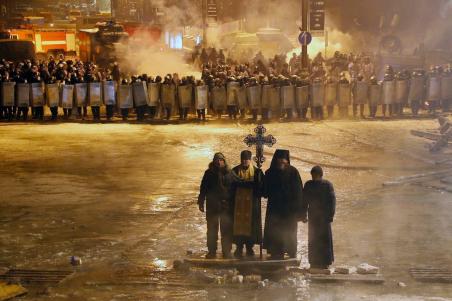 Abraham Joshua Heschel wrote one of my absolute favorite books. It was simply titled The Prophets, and you guessed it, it was a book on the Hebrew prophets. Originally, it was the content of his PhD dissertation, but after some admonition he adapted it for publication.
Abraham Joshua Heschel wrote one of my absolute favorite books. It was simply titled The Prophets, and you guessed it, it was a book on the Hebrew prophets. Originally, it was the content of his PhD dissertation, but after some admonition he adapted it for publication.
As a rabbi, Heschel was a very influential figure. Not only because he understood philosophy well, but also because of his stand for equality during the civil rights movement of the mid-20th century. In fact, if you were to look up any of the marches with MLK Jr., you will find an older man standing next to him. That curious and wild eyed man was Abraham Joshua Heschel. Ultimately, there are a number of reasons that I greatly appreciate such a work, but the primary reason I enjoyed it was because of one simple question…
Was God anthropopathic?
Or, in other words, did God experience human emotions?
Abraham’s answer, brilliantly enough was yes and no. God does emote. In fact, each of the major and minor prophets from Isaiah to Malachi testified to a God that very much does experience emotions. However, God does not experience human emotions. Rather, we experience Godlike emotions.
Thus, we are theopathic.
Or, in other words, we experience the emotions of God.
Herschel adds the caveat that although we experience the same emotions as God, we may not experience them rightly. As a result of our fractured views and improper loves, we are capable of experiencing Godlike emotions disorderedly. For instance, God loves but does not love as we would. God may experience anger, but the anger of the divine will be different from the way that we experience anger. God’s love is not like our love, our love is like God’s. God’s anger is not like our anger, our anger is like God’s.
A few weeks ago I visited an old Mennonite friend, Mark, from my seminary days. It was a great time of catching up on life, jesting, and steaks on the grill. That Sunday we visited the church he attends where he directed me to one of his favorite verses in a hymn. It was fantastic. Taken from Jesus Christ is Waiting, the second verse is as follows…
“Jesus Christ is raging,
Raging in the streets,
Where injustice spirals
And real hope retreats.
Listen, Lord Jesus,
I am angry too.
In the Kingdom’s causes
Let me rage with you.”
Of course, this hymn runs contrary to most. Rage is not often sung about, especially in a church service. Yet, I loved it. Its words struck me deeply and I found it rather refreshing that it would be so bold as to speak of rage so positively.
Church services seem to me as too insular, as too docile or protective. The prophets had no problem engaging the full range of the emotional experience and here we are potentially over-emphasizing the “positive” emotions. Can God rage? Can God rage properly? Clearly, we fail to rage over the right things in life, every generation points to such a reality. Regardless, in light of Heschel’s concept of our being theopathic, it may be helpful to reevaluate our perspective.
Rage is heightened anger and anger can either be fueled by hate or by love. The rage of the Prophets, just as the oft avoided or uncomfortable rage of God, is born out of love. The only question is whether we are loving the proper things in life. So, are there things in life in which it is proper to rage? Of course there is.
Any time a person is devalued or humiliated we ought to be up in arms. The plight of the poor and homeless should cause us to stir. The exploitation of people for labor, the reality of sex slavery, the mass incarceration complex for financial gain, and the depiction of women in media should shatter our docility and naiveté. Verily, any infraction, small or large, upon justice is and should be met with a rally cry of the faithful of God to action.
The Prophets always resonated with me for somewhat archetypal reasons. They stood as people who voiced out for the voiceless. They sat among the marginalized. They saw through the systems that only benefited a few. They walked in such a way that people knew they could not be bought off or silenced. In the truest sense of the word, they were the Nevi’im, the Prophets, the ones “outside of themselves.” They were crazy and bewildering because they did not comply with the laws of empire but joyfully submitted to the Beatitudes of the Kingdom of Heaven.
I am convinced that the more we devote ourselves to God, the more we evaluate ourselves and evict our projections of the Divine from our piety, the more we will have our emotions put back in their proper place. I believe there is a correlation that as we seek to love God, we shall find ourselves loving our neighbors and vice versa.
Why not love like God, be angry like God, be joyful like God, and yes, even rage like God? Perhaps this is a small hint of what it means to be image-bearers…
